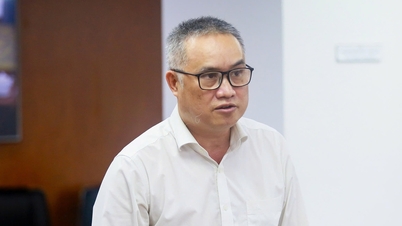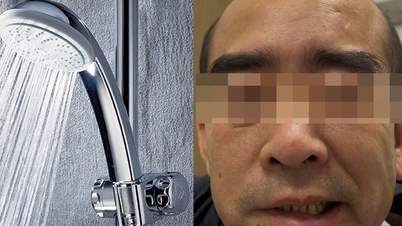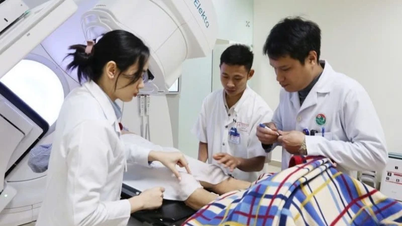Unscientific living habits, smoking, drinking alcohol, lack of exercise, and early underlying diseases cause many young people to have strokes.
Associate Professor, Dr. Nguyen Van Lieu, Head of the Department of Neurology - Stroke, Tam Anh General Hospital, Hanoi, gave the above information, adding that each year, about 16% of stroke cases in the world are between the ages of 15-49. Previously, strokes were common in middle-aged people (over 45 years old) and the elderly (over 65 years old). However, strokes are now increasingly occurring in younger people.
According to Dr. Lieu, the rate of young people having strokes due to cerebral hemorrhage or cerebral vascular occlusion increases by 2% each year. Of these, young and middle-aged people account for about 30%. Of the 6.5 million deaths due to stroke each year, about 6% are young people under 45 years old.
There are many risk factors for stroke. Non-modifiable risks include age (the older you are, the higher the risk), gender, differences in habits, lifestyle, race, etc. Modifiable risk factors include high blood pressure, diabetes, hyperlipidemia, obesity, smoking, and drinking too much alcohol.
For young people, the risk of stroke can be caused by lipid metabolism disorders . The reason is unscientific eating habits, rarely cooking for themselves and often eating out, preferring fast food, greasy food, pre-processed food... which increases the possibility of lipid metabolism disorders. The ratio of apolipoprotein B and apoprotein A-I (ApoB/ApoA-I) in people with lipid metabolism disorders is closely related to ischemic stroke and other brain diseases.
Obesity and physical inactivity are also factors. A new report from the International Obesity Federation predicts that 51% of the world's population, or 4 billion people, will be overweight in the next 12 years. People who sit at computers for long hours a day, move little, and are lazy to exercise are more likely to be overweight and obese. People with a body mass index (BMI) greater than 30 and a waist circumference greater than 80 cm are at higher risk of stroke. This is one of the reasons why the number of young people suffering from stroke is increasing.
According to Dr. Lieu, more and more young people have high blood pressure because they prefer canned and processed foods that contain a lot of salt. Foods with high salt content cause high blood pressure and stroke.
In addition, diabetes is a factor that can lead to stroke. Regularly eating sweets increases the risk of diabetes, damaging endothelial cells. From there, fat molecules penetrate the endothelium easily, forming a solid plaque that narrows the lumen of the blood vessels, leading to stroke.
Another cause of stroke is the habit of smoking and drinking alcohol : Cigarettes and electronic cigarettes contain more than 7,000 harmful chemical toxins. Young people smoke for many reasons such as relieving pressure, socializing or habit. Smoking allows toxins to enter the blood vessels, destroy cells, cause atherosclerosis of the brain and stroke. Drinking alcohol, beer and other alcoholic beverages increases the risk of stroke due to cerebral hemorrhage.
Using birth control pills can also cause stroke because birth control pills containing high doses of estrogen increase blood pressure and increase blood clotting ability, leading to ischemic stroke in young women.
Young people are also susceptible to stroke due to cerebrovascular malformations , abnormal development of cerebral blood vessels forming aneurysms and leading to hemorrhagic stroke or narrowing of cerebral blood vessels, causing cerebral infarction.
Dr. Lieu recommends that young people take the initiative to have regular health check-ups and stroke screening to proactively detect the disease. Brain lesions in silent areas such as stenosis, aneurysm, and cerebral vascular malformations that do not cause symptoms also pose a risk of stroke. Modern CT, MRI, and DSA imaging techniques can detect these abnormalities early. New techniques help detect strokes or even the smallest risk factors early. Thereby, doctors advise on appropriate intervention and prevention methods to avoid the risk of stroke.
Dung Nguyen
| Readers ask neurological questions here for doctors to answer |
Source link








































































































Comment (0)